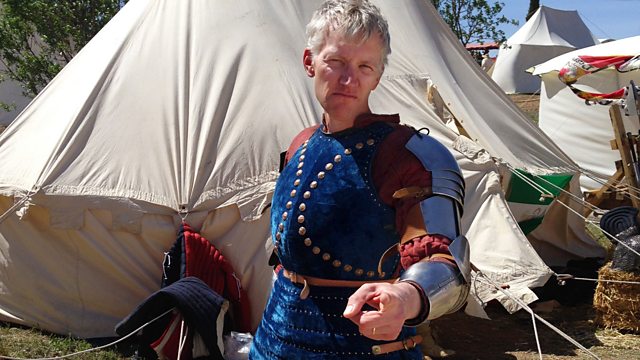22/11/2011
Helen Castor presents the colonialists that came back; defeating Nazi hedgehogs; how the Spanish Civil War came to the Norfolk coast; and a dying craft in Glasgow.
Tenterden Colonialists: A listener's ancestor was part of a fairly large group of people which left Kent in 1634, most of them from the Tenterden area, to emigrate to the New Plymouth Colony and asks: Why did such large groups move as one? Making History consulted Dr Susan Hardman Moore at the University of Edinburgh and Dr Matthew Ward at the University of Dundee. Dr Hardman Moore wrote "Pilgrims: New World Settlers and the Call of Βι¶ΉΤΌΕΔ" in 2007 and has found individuals from Tenterden who moved to America - but then came back.
Dr Ward says: People tended to be recruited in congregational groups and often a leading member of the congregation would start the process and would then involve other family members and friends, and their households which included their servants. As a result people within a single church congregation would often migrate literally together.
Dunwich Hedgehogs: Dr Rob Liddiard and a team from the University of East Anglia have unearthed the forgotten remains of a D-Day training area on the Suffolk coast at Dunwich. Built in 1943 they were informed by the failed attack on Dieppe and show the detail of German coastal defences.
SS Cantabria: In November 1938 a Spanish merchant ship was sunk off the Cromer coast by another vessel from Spain. Professor Eric Groves from the University of Salford explained that the Cantabria was a Republican ship which although not engaged in trade at the time of her sinking had been used to hold Spanish Nationalist prisoners and had links with the Soviet port of Leningrad. She was sunk by the Nationalist ship Nadir which had access to the German Baltic ports. The Cantabria's sinking revealed how international the Spanish Civil War was and how involved Soviets and Nazis were in it.
Glasgow Silversmith: Chris Warhurst is Professor of Work & Organisational Studies at the University of Sydney in Australia and is alarmed by the death of historic crafts in Scotland where he once worked. He took Fiona Watson to meet a silversmith who is soon to shut up shop because he cannot find an apprentice to take over his 500 year old business.
Producer: Nick Patrick
A Pier Production for Βι¶ΉΤΌΕΔ Radio 4.
Last on
Broadcast
- Tue 22 Nov 2011 15:00Βι¶ΉΤΌΕΔ Radio 4
Podcast
-
![]()
Making History
Popular history series where the past connects with the present.


